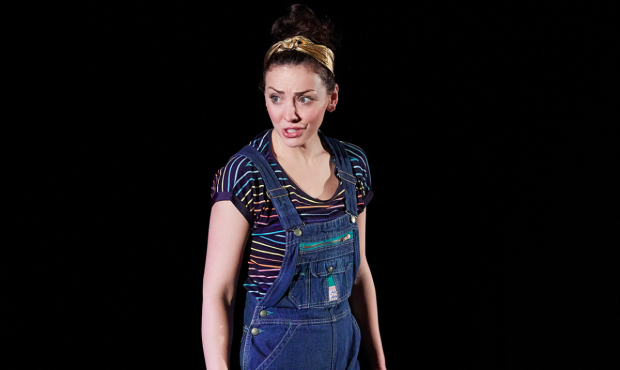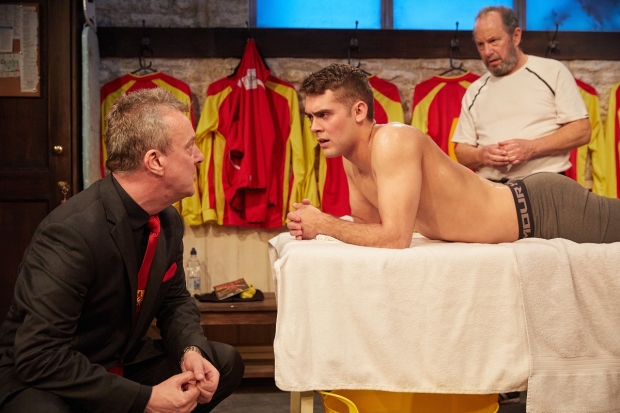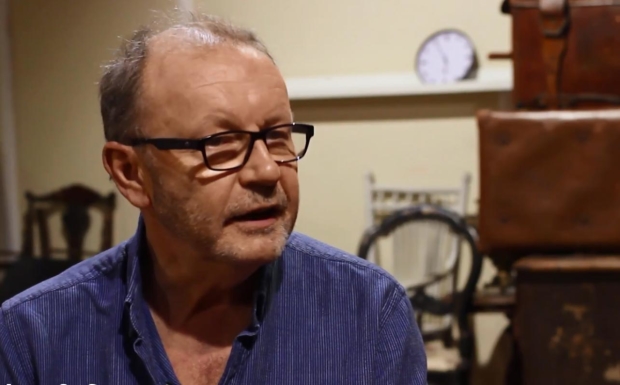Review: Good Girl (Trafalgar Studios)

(© Felicity Crawshaw))
It's easy to see why Good Girl, Naomi Sheldon's debut show, has had continued success. Coming to Trafalgar Studios on the back of a run at both the Edinburgh Fringe and the Vault Festival, it feels contemporary, relevant and, most importantly, incessantly funny. Sheldon weaves together a deft 60-minutes of storytelling that is as agile as it is pertinent.
The piece dives through snapshots of the formative years of main character GG (Good Girl), as an early teen in the mid '90s, an early adult in 2006 and, finally, a 30-something in the present day. From pool-protests, friend schisms and experiencing her first orgasm, Sheldon, as both writer and solo performer, paints a rich tapestry of a young person’s life, replete with various periphery characters, each distinguished by a recurring small physical gesture – the slump of the shoulders, or the scratching of the armpit.
But this is a show all about GG, or, more specifically, GG’s fickle body – one capable of betraying its owner by unleashing a torrent of unquantified emotions, cutting off sexual pleasure, or releasing panic attacks without a moment’s notice. To a young girl growing up, all of these things are alien or, as Sheldon puts it, "It’s the '90s, no one knows what the f**k is going on." GG also feels the keen gendered pressure of her body, at one point declaring to her apathetic father – "When I grow up, I want to be a boy."
There was no language, no system for these things (apart from the teacher asking her if she's on her period), so GG makes up her own – the subtle sexual tingles are Swayzes ("he wasn't dead in the '90s so it wasn't weird") while the teenager literally steels herself against unwanted feelings by encasing her body in steel bars. Distinct, physical metaphors ripple through GG's life, her mental health expressed through a framework of her own making.
Heavy subjects, for sure, but delivered hilariously – Sheldon's performance tinged with small ounces of clowning, a cocked eyebrow and soft northern twang keeping audiences rapt. Poised on a metre-wide spherical platform, it is a testament to both her skill and Matt Peover's direction that the piece never feels static. The platform fills a number of roles – a sign of assurance, of strength as GG looms above her audience, while at the same time a lone island, cut off and isolated from all others.
It makes sense, because this is a play all about paradox – coming to terms with how little control over your body and your emotions you may have. Quick, (almost too quick, especially towards the end) and punchy, Good Girl ends up a rallying cry for anyone who has ever been called intense, or 'psycho', or has a deep love for the moment at four minutes and 40 seconds in ABBA's "Chiquitita" when the instrumental soars. As far as debut plays go, they don't get much better than this.
Good Girl runs until 31 March.















